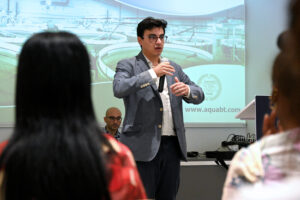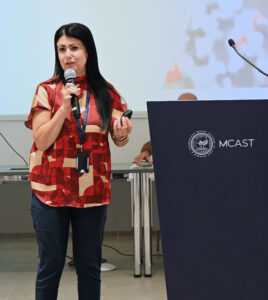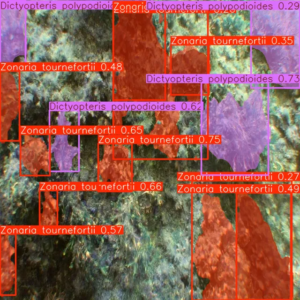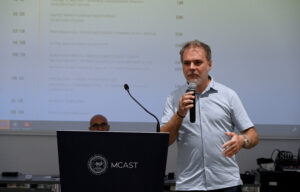A current research and innovation project, ‘AMBULANT,’ led by Maltese researchers from the Malta College of Arts, Science, and Technology (MCAST) and AquaBioTech Group, has developed an innovative system capable of identifying Mediterranean benthic marine habitats using image processing, computer vision, and machine learning.
The new system created through the AMBULANT research project can autonomously monitor offshore aquaculture sites and provide real-time recognition of benthic habitats through a biomimetic robot – a submarine robotic surveyor designed to unobtrusively mimic the movements of fish.

Experts in marine biology from AquaBioTech Group assisted by researchers from the College’s Institute of Information and Communication Technology (ICT) constructed an innovative large dataset of more than 20,000 images, which were surveyed from Maltese waters using a mixture of ROV and diving activities. The dataset was then used to train an AI model that not only performs object detection (that is recognising different classes of underwater species) but also instance segmentation (which provides a fine outline surrounding each identified species). Following the recognition of the different species in an image or video feed, another algorithm was developed to predict the probable habitat based on the species identified. The knowledge used for this algorithm was captured from marine experts and other reputable sources.

MCAST academic researchers who worked on the project explained how one effective way to gauge the health of the oceans is by studying benthic organisms. These organisms are sensitive to environmental changes, making them excellent indicators of ecosystem health. The system created through AMBULANT helps to track these changes and provides valuable data to researchers and policymakers helping them make informed decisions related to the marine world.

This innovative autonomous monitoring system for offshore aquaculture sites offers several benefits, including, efficient monitoring, early issue detection, earmarks sustainable marine practices, helps provide data for decision making, provides scalability since it is adaptable to different marine environments and helps reduce human risk in hazardous offshore environments.
Besides its intrinsic value, this research initiative has important practical implications. Studies have shown that consumers would be more willing to buy fish from fish farms if they could ascertain that the rearing process was not causing environmental degradation. Monitoring results obtained from this and other similar studies, which can clearly show the impact of farming activities on the seabed, may be made publicly available. This would constitute a strong incentive for fish farming companies to clean up their act where necessary.

The Ambulant project was funded by the SINO-Malta bilateral programme, managed by Xjenza Malta.
Project AMBULANT received funding from Xjenza Malta and the Ministry for Science and Technology of the People’s Republic of China (MOST), through the Sino-Malta Fund 2021 (Science and Technology Cooperation) under grant agreement number SINO-MALTA-2021-18.










 MCAST Main Campus
MCAST Main Campus  +356 2398 7100
+356 2398 7100
 information@mcast.edu.mt
information@mcast.edu.mt